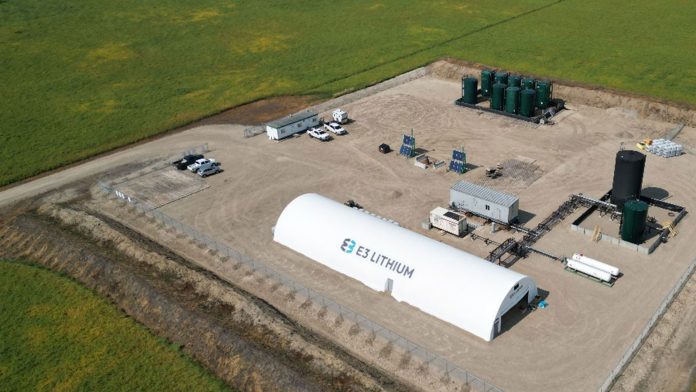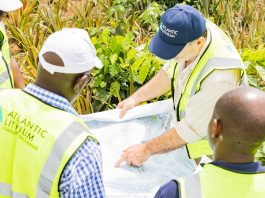Alberta has rushed ahead in the global critical minerals race as the state opened its first-ever lithium pilot project.
The lithium pilot project, situated east of Olds in central Alberta, marks a new era for the province’s traditionally oil- and gas-dominated economy.
Chris Doornbos, CEO of E3 Lithium, commented: “Without forsaking our past, the lithium pilot project opens up a whole new industry, using our existing skill set.
“The opportunity to be a global leader and to make Alberta a lithium jurisdiction is really and truly here.”
Why is the demand for locally produced lithium so huge?
Lithium is in huge demand across the globe currently due to its use in electric vehicle batteries.
Currently, the world’s biggest lithium producers are Australia, Chile and China.
However, Alberta is home to one of the world’s largest lithium deposits, located deep underground in the Leduc geological formation, which is also a significant oil- and gas-producing area.
Until now, there has been little interest in producing Alberta’s lithium pilot project. However, the growth in electric vehicles and the increasing demand for lithium-ion batteries has changed that.
Lithium is now a key focus of the Government of Canada’s $3.8bn Critical Minerals Strategy, which aims to increase domestic extraction and production of the metal along with other previously under-developed resources such as cobalt, copper, titanium, and zinc.
E3 Lithium’s lithium pilot project is set to revolutionise extraction technology
E3 Lithium currently holds the rights to around 16 million tonnes of lithium resources. The company’s made-in-Alberta lithium pilot project extracts the lithium that occurs naturally within oilfield brines.
The company plans to pilot its technology to open a full-scale commercial plant in the same area by late 2026.
The lithium pilot project could process up to 150,000 tonnes per year of battery-grade lithium products ready to be sold directly to battery producers and EV companies.
Doornbos said he expects to see traditional oil and gas companies increasingly looking to lithium as another potential revenue source.
“I think the oil and gas companies are very closely watching the lithium space,” Doornbos said.
“I could see them partnering with lithium companies, but I could also see them, as Exxon is already doing, doing it themselves and creating a business unit and making lithium.”
Other projects that will fuel Canada’s position in the critical minerals race
Aside from the lithium pilot project, there are a handful of others with projects still in the planning phases.
Brian Jean, Alberta’s Minister of Energy and Minerals, said his government wants to see the province become a “preferred producer and supplier” of industrial minerals and critical metals.
“Increased global demand for electric vehicles and battery storage is going to lead to Alberta having another resource to sell to the world,” he explained.
The federal government has also announced hundreds of millions in government subsidies in an effort to attract battery production and EV manufacturing to Canada. One example is the federally subsidised electric vehicle battery plant that is currently under construction by Stellantis near Windsor, Ontario.
Doornbos said Canada will need to be “extremely aggressive” if it wants to compete with the United States on electric vehicle and battery production.
However, regarding the lithium pilot plant, he is “confident” Alberta can win.









